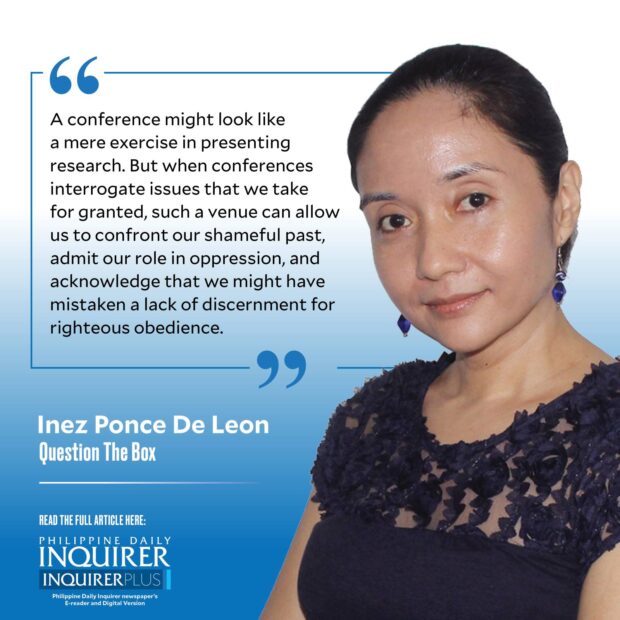Of science, weapons, and power

Last week, I was at the international conference of the Society for the Social Studies of Science (4S). I’ve always gone to the 4S conferences whenever I could: the research topics all have to do with a critical look at science and technology, and it’s a rich village of knowledge for researchers who like to deeply explore issues such as war, education, artificial intelligence, development, and disasters.
This year’s conference was especially poignant. We were in Honolulu, a place with a long history of battling conquerors. In the 1800s, United States forces violently took over the once peaceful, independent kingdom of Hawaii, pushing natives to the margins while the conquerors extracted the islands’ resources.
Hawaiian natives continue to fight the powers that be. For example, while there are important observatories on the islands, they also interrupt the landscape and threaten the practice of indigenous wayfinding (e.g., navigation using the stars while on open water). These traditions are often ignored by scientists who insist on the importance of “objective” knowledge. In response, the islands’ inhabitants offer Ohana stargazing, a periodic overnight activity that involves lei-making, storytelling, and traditional dances, alongside tutorials on traditional stargazing. There, too, is a look not only at the light but an understanding of the dark spaces between the stars.
One of the most moving conference sessions involved the Maui wildfires. One might simply jump to blaming climate change and faulty warning systems. The wildfires and their tragic aftermath, however, are the results of a long history of oppression. When the fires swept through the town of Lahaina, the low-quality pipes melted, and there was no water to help an area dense with those who had been pushed there because of tourism.
In one post-disaster hearing, shown to us as a video at the conference, a mother and activist testified about her experience in losing her home to the fires. She spoke of the original name of Lahaina, which, in Hawaiian, could mean “land of prophecy.”
The fires, she said, were a prophecy of disasters to come, all of them a result of the earth being out of balance. But what was especially striking were the questions that she used to criticize what had been done to Hawaii in the service of so-called progress: What is the purpose of this? Who or what is this in service to? Whose fantasies are being entertained—but whose realities must we also confront?
There were more questions, but these first few are nevertheless striking. They can be asked to criticize anything imposed with both passion and urgency; for example: unity, forgetting, healing.
These orders cannot simply be imposed without asking what greater purpose they serve. The subsequent questions are even more uncomfortable when asked in the Philippine context. They are equivalent to: If I simply force myself to forget and heal, then who really benefits?
For example: If I decide to disregard my history, to allow schools to erase martial law from the curriculum, to forget the damage that was done—then whose interests am I serving, and whose fantasy am I feeding, at the behest of the rights of many?
The mother did not stop at the questions. She said that Lahaina could heal; but if the questions she had asked were not confronted and answered, then all the old problems would simply return: “Healing does not happen until we feel safe.”
Safety is a multilayered construct, but the point remains: Healing (as with unity or forgetting) cannot be insisted on, because it does not exist as a mere emotion independent of external responsibility. In the case of nations subjugated and abused, the duty of ensuring safety falls to the conquerors, who, as history might show us, have almost always abused their power.
A conference might look like a mere exercise in presenting research. But when conferences interrogate issues that we take for granted, such a venue can allow us to confront our shameful past, admit our role in oppression, and acknowledge that we might have mistaken a lack of discernment for righteous obedience.
For example, those of us who were once scientists might have thought that we were simply following the rules by advocating for scientific knowledge, while ignoring indigenous knowledge or, worse, legitimating such knowledge only if it is validated by laboratory work.
It’s no surprise that many of us at 4S are also former scientists. We felt limited by a science that sometimes disregards the role of contexts, and that often turns arrogant rather than curious in the face of new knowledge.
But it also falls to us — both those trained as researchers and those who are not — to welcome and act upon new knowledge. That is: When confronted with new information, whether unmasked history or bitter reality, then we have to fight for those who have been wronged.
We have no right to fall back on the comfort of ignorance, and no right to blindly obey whoever tells us to ignore the truth.




















